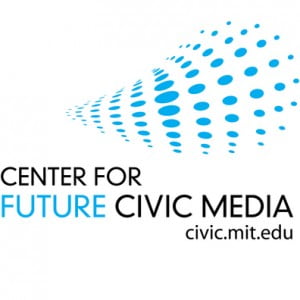The new Center for Future Civic Media (C4) site, at civic.mit.edu, not only serves as the public face of C4 but also reflects its collaborative mission: to develop new technologies that support and foster civic media and political action, serve as an international resource for the study and analysis of civic media, and coordinate community-based test beds both in the United States and internationally.
The new site encourages the free sharing of civic media tools. MIT-made tools–including the group decision-making tool Selectricity and a tool to report acts of civic courage, called Hero Reports–are currently featured, but so are tools submitted by others, such as IBM’s visualization program, Many Eyes. The site’s central aim is to highlight others’ civic media tools, to give them a platform for sharing and improvement.
Visitors to the site are encouraged to follow the work of Center for Future Civic Media’s researchers, partners, and students through its blog and its many events. And they can discuss civic media issues, ideas, and challenges in the site’s public forums.
About the Center for Future Civic Media
The Center for Future Civic Media supports research at MIT to innovate civic media tools and practices and test them in communities. Bridging two established programs at MIT–one known for inventing alternate technical futures, the other for identifying the cultural and social potential of media change–the Center for Future Civic Media is a joint effort between the MIT Media Lab and the MIT Comparative Media Studies Program. It is made possible by a four-year grant from the Knight Foundation.
Transforming civic knowledge into civic action is an essential part of democracy. As with investigative journalism, the most delicate and important information can often focus on leaders and institutions that abuse the trust of the communities they serve. By helping to provide people with the necessary skills to process, evaluate, and act upon the knowledge in circulation, civic media ensures the diversity of inputs and mutual respect necessary for democratic deliberation. Some of what emerges here looks like traditional journalism, while some moves in radical new directions.



